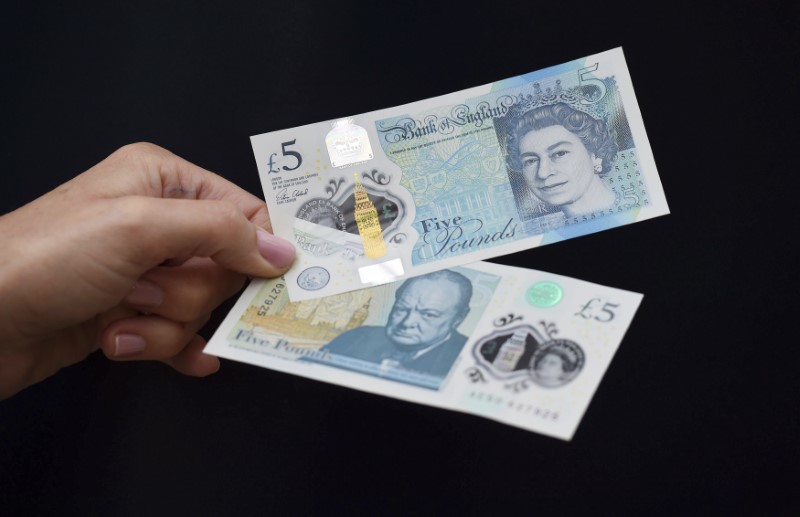By Marc Jones
LONDON (Reuters) - Sterling rose against the dollar for the second day running on Thursday, as more upbeat data underlined the UK economy's post-Brexit resilience and helped the pound make the most of a retreating greenback.
Sterling started the day under pressure but improved after strong data from the UK's dominant services sector and record car sales.
The turnaround was completed as unspectacular weekly U.S. jobs figures hobbled the dollar ahead of non-farm payrolls data on Friday and left sterling at $1.2432, up 0.9 percent and on course for its best day against the U.S. currency since the start of December.
It lost ground against the euro at 85.27 pence, down 0.3 percent on the day, and lost 0.8 percent against the yen at 143.32, though it clawed back roughly half its losses having earlier looked on course for its worst session against the pair in two weeks.
ING's head of foreign exchange strategy Chris Turner said the market was dominated by the dollar's wilt but that UK data had certainly also helped the pound.
"It lifted us above $1.23 in the morning then the tailwind (from the weak dollar) came in the mid afternoon."
"The U.S. data seemed ok to me, but I think the market has just found itself too long against the dollar and has seen a bit of a correction."
The UK services Purchasing Managers' Index (PMI) beat all forecasts, showing the key engine of the economy grew in December at the fastest rate since mid-2015.
A record 2.69 million new cars were also sold in Britain in 2016, car industry data showed, adding to a run of economic surveys this week that have shown no impact yet from the UK's soon-to-start Brexit negotiations.
If the data continues to be strong "it should question many analysts' view that the pound will be sluggish," said Nordea bank FX Strategist Aurelija Augulyte. "We would love to see cable (GBP/USD) at $1.25."
It wasn't all warm and cosy however. Caution surrounding the impending Brexit negotiations continued to simmer in the background.
The pound tumbled 16 percent against the dollar and 14percent against the euro in 2016, its worst annual performance in eight years, with the bulk of those falls coming after Britain voted on June 23 to leave the European Union.

Norway's prime minister gave a frank warning that Britain lacked experience in international negotiations and said feared "a very hard Brexit".